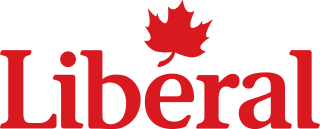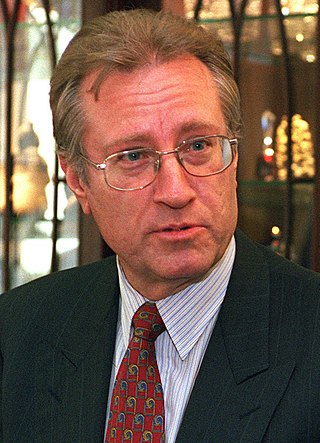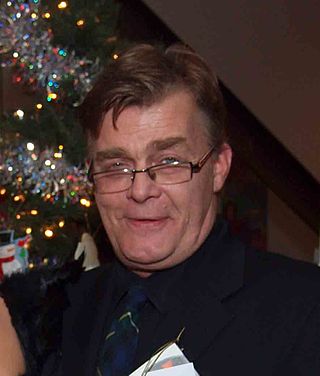
The Liberal Party of Canada is a federal political party in Canada. The party espouses the principles of liberalism, and generally sits at the centre to centre-left of the Canadian political spectrum, with their main rival, the Conservative Party, positioned to their right and the New Democratic Party positioned to their left. The party is described as "big tent", practising "brokerage politics", attracting support from a broad spectrum of voters. The Liberal Party is the longest-serving and oldest active federal political party in the country, and has dominated federal politics of Canada for much of its history, holding power for almost 70 years of the 20th century. As a result, it has sometimes been referred to as Canada's "natural governing party".
The Coalition of Progressive Electors (COPE) is a municipal political party in the Canadian city of Vancouver, British Columbia. It has traditionally been associated with tenants, environmentalists, and the labour movement. COPE is generally guided by democratic socialist principles following the split of its social democratic wing in 2014 to form OneCity Vancouver, and has a long history of advocating for issues such as improving public transit and investing in affordable housing. It last held a majority government on city council from 2002 to 2005. COPE describes itself as being committed to renter protections, ending homelessness, taxing the rich to build social housing, safe supply, free transit, Indigenous reconciliation, climate action, and other social and environmental reforms.

The Non-Partisan Association (NPA) is a municipal political party in Vancouver, British Columbia, Canada. It was established by the city's business leaders in 1937 to challenge the democratic socialist Co-operative Commonwealth Federation (CCF) in that year's municipal election. The party has historically been described as centre-right and drawn its strongest support from Vancouver's business community.

Arthur C. Eggleton is a retired Canadian politician who served as the 59th and longest-serving mayor of Toronto from 1980 to 1991. He was elected to Parliament in 1993, running as a Liberal in York Centre and served as a member of Parliament (MP) until 2004 when he declined to seek re-election. Eggleton held a number of cabinet positions from 1993 to 2002 including Treasury Board president, minister of infrastructure, minister of international trade, and minister of national defence. He was appointed to the Senate in 2005, serving until he reached the mandatory retirement age of 75 in 2018.

Da Vinci's Inquest is a Canadian dramatic television series which originally aired on CBC Television from 1998 to 2005. While never a ratings blockbuster, the critically acclaimed show did attract a loyal following, and ultimately seven seasons of thirteen episodes each were filmed for a total of ninety-one episodes.
David Paul Smith, was a Canadian lawyer, politician and senator.
Grant Mitchell is a Canadian politician and businessman. Over his career, he was leader of the Alberta Liberal Party and a member of the Senate of Canada.

Da Vinci's City Hall is a Canadian dramatic television series, which premiered on CBC Television on 25 October 2005 and ended on 28 February 2006. It is a spin-off of the long-running Canadian series Da Vinci's Inquest. The creator, writer and executive producer of the series was Chris Haddock.
Mobina S. B. Jaffer is a Canadian Senator representing British Columbia.

Nicholas Campbell is a Canadian film, television and voice actor and filmmaker, who won three Gemini Awards for acting. He is known for such films as Naked Lunch, Prozac Nation, New Waterford Girl and the television series Da Vinci's Inquest.

Jim Green was an American-Canadian who was a longshoreman, taxicab driver, community activist, non-profit housing developer, municipal politician, university instructor and development consultant.

Vision Vancouver is a green liberal municipal political party in Vancouver, British Columbia, Canada. Vision was formed in the months leading up to the 2005 municipal election.
Vancouver, unlike other British Columbia municipalities, is incorporated under a unique provincial statute, the Vancouver Charter. The legislation, passed in 1953, supersedes the Vancouver Incorporation Act, 1921 and grants the city more and different powers than other communities possess under BC's Municipalities Act.

Richard Thomas Coleman is a Canadian politician and former police officer who served as a Member of the Legislative Assembly (MLA) in British Columbia, representing Fort Langley-Aldergrove from 1996 to 2017, and Langley East from 2017 to 2020. As part of the British Columbia Liberal Party caucus, he served in several cabinet posts under Premiers Gordon Campbell and Christy Clark, including as the 13th Deputy Premier of British Columbia from 2012 to 2017. He was also the party's interim leader and Leader of Opposition in British Columbia between 2017 and 2018.
Jamie Graham, O.O.M. is a former chief for the Victoria Police Department. He previously served as the chief constable of Vancouver, British Columbia from August 22, 2002 to August 13, 2007. A former Royal Canadian Mounted Police officer, Graham's five-year contract with the Vancouver Police Department was not renewed. His time as chief there ended on August 22, 2007.

Jody Wilson-Raybould, also known by her initials JWR and by her Kwak’wala name Puglaas, is a Canadian lawyer, author, and former politician who served as the member of Parliament (MP) for the British Columbia (BC) riding of Vancouver Granville from 2015 to 2021. She was initially elected as a member of the Liberal Party – serving as justice minister and attorney general from 2015 to 2019, and briefly as veterans minister and associate national defence minister in 2019 – until she was expelled from caucus amid the SNC-Lavalin affair. She continued to sit in Parliament as an Independent and was reelected in 2019, but did not run in 2021. Before entering federal politics, she was a BC provincial Crown prosecutor, a treaty commissioner and regional chief of the BC Assembly of First Nations.

The 42nd Canadian Parliament was in session from December 3, 2015, to September 11, 2019, with the membership of its lower chamber, the House of Commons of Canada, having been determined by the results of the 2015 federal election held on October 19, 2015, and thirty new appointees to its Upper House, the Senate of Canada. Parliament officially resumed on December 3, 2015, with the election of a new Speaker, Geoff Regan, followed by a Speech from the Throne the following day. The Speaker of the Senate of Canada was George Furey, who was appointed Speaker of the Canadian Senate on the advice of Prime Minister Justin Trudeau, to replace Leo Housakos, on December 3, 2015. On September 11, 2019, Prime Minister Justin Trudeau advised Governor General Julie Payette to dissolve Parliament and issue the writ of election, leading to a 5-week election campaign period for the 2019 federal election. Significant legislation adopted during the 42nd Parliament included the Cannabis Act, the Greenhouse Gas Pollution Pricing Act, the Comprehensive Economic and Trade Agreement Implementation Act, the Trans-Pacific Partnership Implementation Act, the Canada Infrastructure Bank Act, the Impact Assessment Act and Canadian Energy Regulator Act, as well as the legalizing of medical assistance in dying and adding gender identity and expression to the list of prohibited grounds of discrimination in the Canadian Human Rights Act.
The Independent Senators Group is a parliamentary group in the Senate of Canada. Established on March 10, 2016, the Independent Senators Group is committed to a non-partisan Senate and the modernization of the Upper House of Canada's Parliament. The Independent Senators Group is the largest parliamentary group in the Senate. Composed of independents not affiliated with any political caucus, members of the group work cooperatively but act independently.

The Canadian Senators Group is a parliamentary group of senators in the Senate of Canada founded on November 4, 2019, by eight senators from the Independent Senators Group, two from the Conservative Party of Canada's Senate caucus, and one non-affiliated senator. Its inaugural and current leader is Scott Tannas.

The Progressive Senate Group is a parliamentary group in the Senate of Canada. It was formed on November 14, 2019, out of the now-defunct Senate Liberal Caucus. It is currently lead by Jane Cordy.













